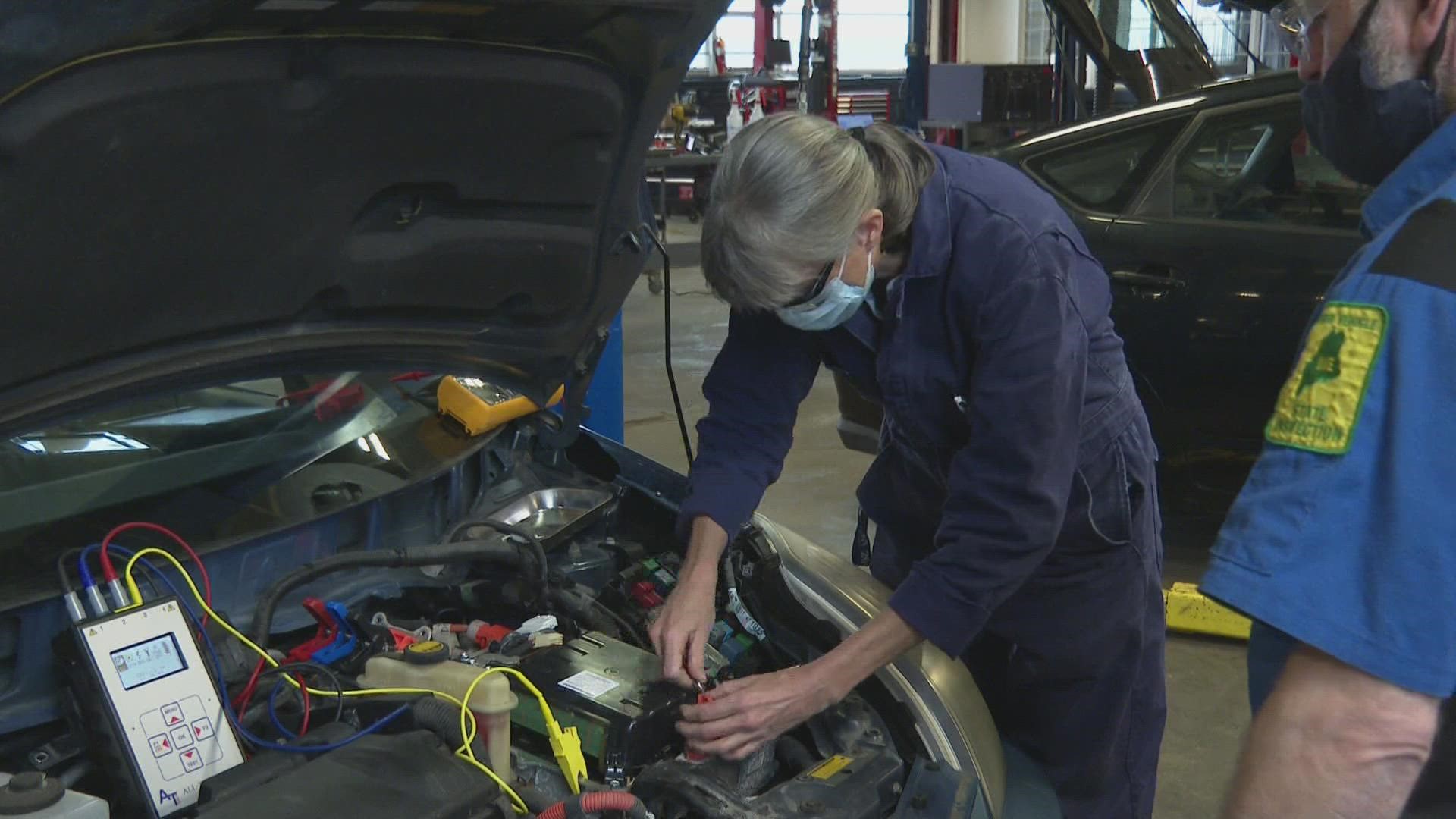SOUTH PORTLAND, Maine —
Southern Maine Community College's Automotive Technology Center is part classroom, part fully functioning auto repair shop.
It also might be the most scenic shop in Portland. Looking out past a row of cars through the building's north-side windows, Spring Point Ledge Lighthouse glistens in the sun as its iconic rocky foundation juts out from its South Portland peninsula.
But, the work being done inside the plain brick building — while not worthy of a postcard — marked the beginning of a promising new opportunity at the school.
This month, SMCC launched an electric vehicle repair certification program. It's the first of its kind in Maine.
Ruth Morrison chairs the school's automotive technology department. She’s been working on cars professionally since 1993. But, for this week in the classroom, she was a student.
“Well, teachers are always students,” she expounded. “Especially in this field, because we have to keep up with the technology.”
Technology: like the ever-increasing fleet of America’s electric vehicles. According to the secretary of state’s office, more than 30,000 hybrid and all-electric cars are registered in Maine alone.
SMCC’s new program provides workforce training — not part of a two or four-year degree — where the students can earn a certificate quickly.
Justin Hynes joined Morrison and a handful of peers in the 70-hour class (30 hours online, 40 hours in person). All are trained auto techs already. After this added knowledge, he said, they’ll return to work more valuable and ready for the future of the industry.
“Being able to handle this is a whole other ballgame,” he said.
Renewable energy work is a ballgame Maine’s community college system wants to play. In the spring, thanks to a $400,000 grant from KeyBank, York County Community College will redesign a two-year program currently offered at Eastern Maine Community College and begin an accelerated course, training students to become electrical journey technicians and work on solar panels. John Fitzsimmons, president of Maine’s Community College Foundation, said his students are practical with their education.
“They really come to us looking at where is the opportunity at the end of the education,” he explained of his average student. “So, it’s not, ‘I’m going to college for the experience; I’m going to college and I’ll find out what I want to do along the way.’ It’s very practical.”
What's more, Fitzsimmons is selling these programs to students with the assurance they will be leaving school with much demand for their particular skills.
Practical thinking now; a high-paying career likely soon.

